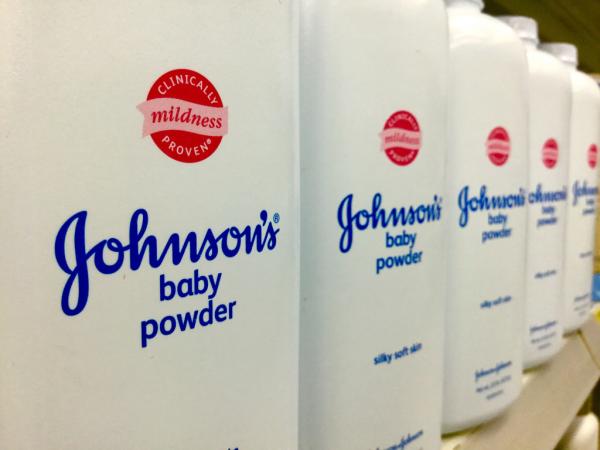A Missouri court of appeals recently tossed out a decision to award $72 million (ten million dollars in actual damages and $62 million in punitive damages) to a woman suing Johnson & Johnson alleging that the company’s baby powder caused her ovarian cancer.
Initially a jury in a St. Louis circuit court initially decided in favor of Jacqueline Fox, 62, of Birmingham, Alabama (who had passed away before her case went to trial). The plaintiff had claimed that years of use of Johnson & Johnson products containing talcum powder had contributed to her development of ovarian cancer. This week, an appellate Missouri court reversed the decision to award Ms. Fox the $72 million indicating that the state of Missouri does not have jurisdiction over injuries occurring outside of its borders.
Irrespective of the technicalities involved in the decision to reverse the original jury’s award, what should be at the forefront of this discussion is that the evidence supporting this causal relationship is lacking. But apparently, evidence, or the lack of it, is largely a moot point. Ultimately, it seems as though scientific fact plays a very small role if any in decision-making processes, and the interpretation of science is made by lawyers, judges, and juries. What drives cases is really rooted in consumer pressure and the popular media with debates occurring against a political backdrop of controversy.
One need look no further than the silicone implant debacle causing the Food and Drug Administration to recommend taking silicone implants off the market because of growing safety concerns and then subsequently lifting the ban in 2006 - when it was found that silicone implants are safe. Sometimes, these concerns are nested in the court of public opinion, and it causes a disservice to the public by creating false fears.
Getting back to talcum powder, it is made from talc, a mineral composed of magnesium, silicon, and oxygen. In its natural form, it is known to contain some asbestos. It is was not until the 1970s that all talcum powder was asbestos-free. The International Agency for Research on Cancer (IARC) classifies the use of talcum powder in the genital area as “possibly carcinogenic to humans.” Whereas, the American Cancer Society states that if any real risk does exist, then it is very small and whether that risk is real or not has yet to be determined. And I should add for argument’s sake that IARC has also insisted that eating bacon is as bad as smoking and that drinking hot liquids cause cancer - both are untrue.
Studies were done that have looked at talc-containing diaphragms and condoms (that are directly introduced into the female genital tract and not just a light perineal dusting) have failed to reveal any increased carcinogenic effect. In rat studies, lifelong, whole-body talc exposure was not associated with increased rates of ovarian cancer. Additionally, in talc miners and millers, there were no increased rates of lung tumors. The studies that suggested some possible link were case-control studies which are highly susceptible to recall bias.
When judgments are made that translate to tens or hundreds of millions of dollars, I would hope that gross negligence, willful harm, or solid scientific evidence support whatever claim is made. I will not, however, dismiss these suits as frivolous because I do not intend to minimize the devastating impact of cancer and a need for answers. That, to me, would also be a tremendous disservice. When concerns for safety arise, it should trigger further research for actual answers and not translate into financial rewards based on the jury’s sympathy for the plaintiff.




